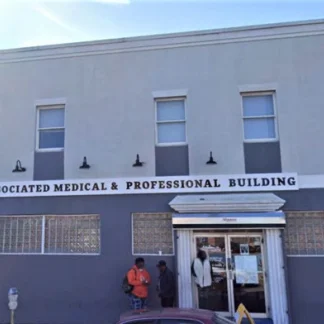The Baltimore Station
The Baltimore Station is an innovative therapeutic residential treatment program...
Penn North Recovery is a drug and alcohol treatment center based in Baltimore, MD. Their comprehensive drug rehab programs and services are designed to address the unique needs of each individual, empowering them to achieve lasting sobriety and a brighter future.
Penn North Recovery Center offers a wide range of comprehensive services to support individuals on their journey to recovery from substance abuse and addiction.
Penn North offers outpatient treatment programs that provide flexibility and support for individuals in their recovery journey. Through individual counseling, group therapy, and educational sessions, individuals receive personalized care while maintaining their daily routines and responsibilities.
Group therapy is a vital component of the treatment programs at Penn North. In a supportive group setting, individuals have the opportunity to connect with others who are facing similar challenges, share experiences, and learn from one another. Group therapy fosters a sense of community, promotes empathy, and provides valuable peer support throughout the recovery journey.
Penn North emphasizes the importance of relapse prevention in maintaining long term sobriety. Their programs include relapse prevention strategies, education, and skill building exercises to equip individuals with the tools and resources necessary to navigate triggers, manage cravings, and maintain a healthy and substance free lifestyle.
Contact us for more information: (410) 728-2080

Connect with Penn North Recovery by calling their admissions team directly.
(410) 728-2080 Website Get DirectionsResearch clearly demonstrates that recovery is far more successful and sustainable when loved ones like family members participate in rehab and substance abuse treatment. Genetic factors may be at play when it comes to drug and alcohol addiction, as well as mental health issues. Family dynamics often play a critical role in addiction triggers, and if properly educated, family members can be a strong source of support when it comes to rehabilitation.
Group therapy is any therapeutic work that happens in a group (not one-on-one). There are a number of different group therapy modalities, including support groups, experiential therapy, psycho-education, and more. Group therapy involves treatment as well as processing interaction between group members.
In individual therapy, a patient meets one-on-one with a trained psychologist or counselor. Therapy is a pivotal part of effective substance abuse treatment, as it often covers root causes of addiction, including challenges faced by the patient in their social, family, and work/school life.
Group therapy is any therapeutic work that happens in a group (not one-on-one). There are a number of different group therapy modalities, including support groups, experiential therapy, psycho-education, and more. Group therapy involves treatment as well as processing interaction between group members.
In individual therapy, a patient meets one-on-one with a trained psychologist or counselor. Therapy is a pivotal part of effective substance abuse treatment, as it often covers root causes of addiction, including challenges faced by the patient in their social, family, and work/school life.
In individual therapy, a patient meets one-on-one with a trained psychologist or counselor. Therapy is a pivotal part of effective substance abuse treatment, as it often covers root causes of addiction, including challenges faced by the patient in their social, family, and work/school life.
The Baltimore Station is an innovative therapeutic residential treatment program...
EPOCH Counseling Center West is a private rehab located in Catonsville, Maryland...
JR Healthcare – Behavioral Health is a private rehab located in Baltimore, Maryl...
Freedom Advocates Celebrating Ex Offenders - FACE is a non-profit rehab located ...